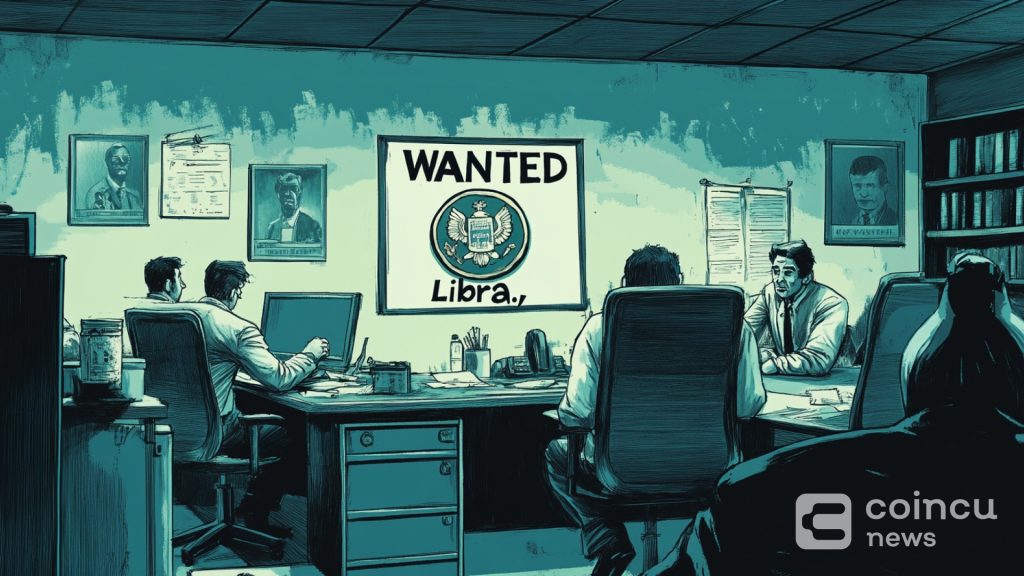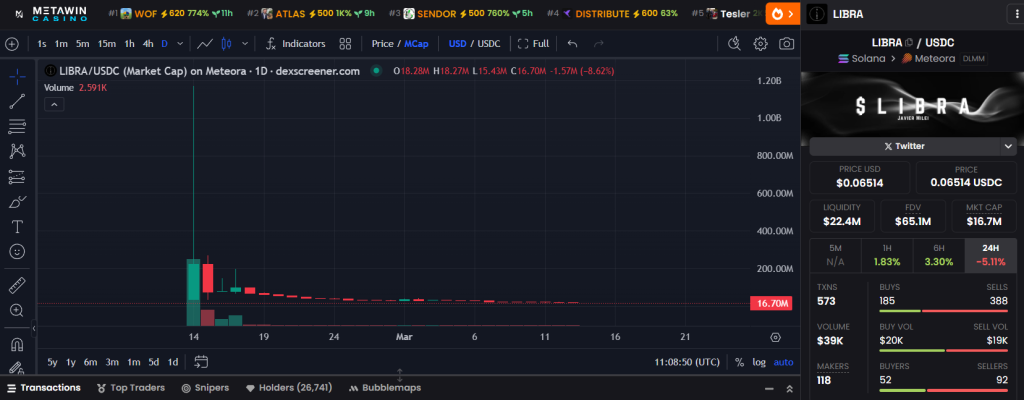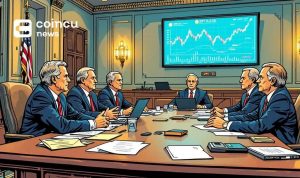| Key Points: – The Libra Memecoin Scandal has escalated as an Argentine lawyer requests an Interpol Red Notice for Hayden Davis. – The LIBRA token, promoted by President Javier Milei, surged to $4.5 billion before crashing. – Davis and Kelsier Ventures allegedly orchestrated a rug pull, extracting over $100 million. – Investigators are probing potential ties between Davis and high-ranking Argentine officials. |

Libra Memecoin Scandal deepens as Argentina seeks an Interpol Red Notice for Hayden Davis, alleging financial fraud and market manipulation tied to the crypto crash.
This scandal has sparked major legal and financial repercussions, drawing scrutiny on crypto regulations in Argentina. With potential ties to government officials, the case could influence broader discussions on political involvement in digital assets.
Libra Memecoin Scandal: Argentina Seeks Interpol Red Notice
The Libra Memecoin Scandal has taken a legal turn as Argentine attorney Gregorio Dalbon formally requested an Interpol Red Notice for Hayden Davis, the founder of Libra and CEO of Kelsier Ventures. The move comes after LIBRA, a token promoted by Argentina’s President Javier Milei, experienced a meteoric rise to $4.5 billion in market cap before crashing, causing hundreds of millions in losses.
Dalbon argues that Davis, who allegedly masterminded the token’s creation and subsequent rug pull, poses a flight risk due to his vast financial resources and global connections. The legal filing calls for Davis’s immediate arrest and extradition to Argentina to face fraud and market manipulation charges.
How Libra Memecoin Became a Political and Financial Scandal
The Libra Memecoin Scandal began on February 15, 2025, when President Milei shared a social media post endorsing the LIBRA token. His influence triggered a massive speculative rush, propelling the token’s market value to $4.5 billion within hours.
However, shortly after, large liquidity withdrawals exceeding $100 million were made, leading to a catastrophic price collapse, LIBRA plummeted by 90%, leaving investors with massive losses worth over $250m.
In response, Milei denied any involvement, claiming he was merely sharing information rather than actively promoting the token. Additionally, he attempted to deflect criticism by stating that the majority of affected investors were from China and the United States, rather than Argentina.
However, the scandal quickly turned into a national crisis, prompting multiple financial investigations into potential insider trading and political corruption. Prosecutors are now working to review Milei’s phone records, and examine visitor logs from the presidential office, signaling deeper scrutiny of his involvement.
Investigators have since identified Kelsier Ventures, led by Hayden Davis, as the primary entity behind the LIBRA crash. Evidence suggests that Davis had direct financial and political ties to high-ranking officials, including Karina Milei, the president’s sister and key advisor.
Legal Battle Intensifies as Davis Hires Top Defense Team
Facing growing scrutiny, Hayden Davis has gone on the defensive, claiming that LIBRA was an economic experiment rather than a scam. In a recent interview with YouTuber Coffeezilla, Davis blamed the Argentine government for withdrawing its support, which he says triggered panic selling and the token’s collapse.
To bolster his defense, Davis has overhauled his legal team, hiring Waymaker Law, a top litigation firm in Los Angeles, alongside Marcos Salt, a leading Argentine expert in cybercrime. Despite his claims of innocence, legal analysts argue that his willingness to return investor funds could be seen as an admission of wrongdoing rather than an act of goodwill.
If the Interpol Red Notice request is approved, Davis could face extradition from the United States. However, given past high-profile extradition cases, such as Do Kwon’s legal battle, the process could take months or even years. Meanwhile, LIBRA’s market cap has plummeted to $16.7 million, with stolen funds reportedly converted into SOL and USDC before being scattered across multiple wallets.

The Libra Memecoin Scandal remains one of the most high-profile crypto fraud cases in history, with far-reaching implications for both Argentina’s political stability and global crypto regulation.
| DISCLAIMER: The information on this website is provided as general market commentary and does not constitute investment advice. We encourage you to do your own research before investing. |























